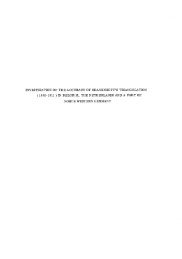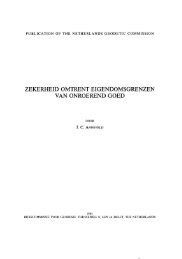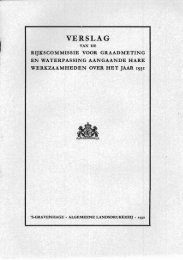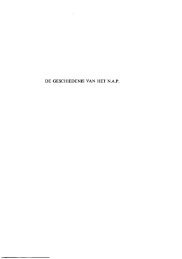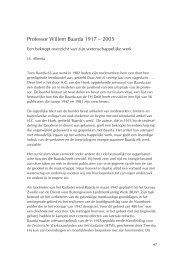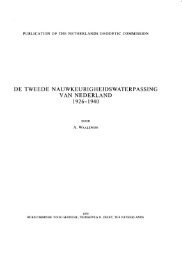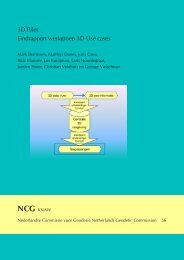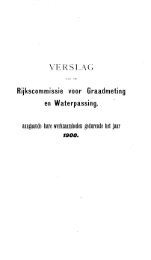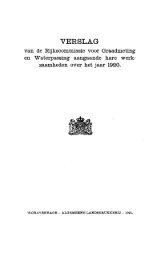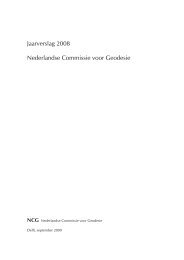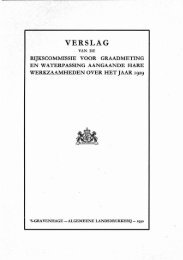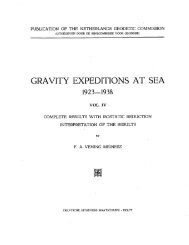SDI Convergence - Nederlandse Commissie voor Geodesie - KNAW
SDI Convergence - Nederlandse Commissie voor Geodesie - KNAW
SDI Convergence - Nederlandse Commissie voor Geodesie - KNAW
Create successful ePaper yourself
Turn your PDF publications into a flip-book with our unique Google optimized e-Paper software.
Many of the problems of a non-technical nature are typical only for a specific nation or<br />
a group of nations. This shows that historic background, traditions and nationally<br />
grounded cultures of handling problems in general have also had an impact.<br />
4.2 The second period<br />
The second period can be estimated from a few years before the millennium until today.<br />
This period is dominated by questions concerning:<br />
– Networks, infrastructures, <strong>SDI</strong> concepts;<br />
– Organisational issues;<br />
– Information standards;<br />
– The importance of words like awareness, trust, culture, benefits to society.<br />
Georgiadou (2006) mentions periods that are socio-technical and multi-disciplinary. In<br />
this context we can, however, call this second period ‘a period where information,<br />
knowledge and coordinated activities dominate the scene’. During this period many<br />
articles and reports have been published covering a broad area of subjects concerning<br />
<strong>SDI</strong> and even cooperation to some extent.<br />
Questions of techniques, ‘how to do’ instructions and project reports have diminished<br />
in number and instead quite a broad variety of different new subjects has emerged.<br />
This happened parallel to tremendous technical developments – internet, new ways of<br />
organising databases, new media for storage and use and expanding international<br />
standardisation and policy declarations. The first period of technique euphoria and visionary<br />
expectations has turned into a more realistic working phase where many aspects<br />
and societal circumstances are taken into consideration – a growing understanding<br />
that new technical possibilities must have a lot of organisational, societal and other<br />
backup to work properly.<br />
Questions of cooperation appear more frequently in the second period than in the first.<br />
Many authors find cooperation important in many contexts within this field (see Craig,<br />
2005; De Bree and Rajabifard, 2005; Harvey, 2003). Some aspects are described and<br />
one can notice efforts to define cooperation (in contrast to collaboration and coordination)<br />
(see Clausen et al., 2006). However, it is difficult at this stage to find literature<br />
devoted to cooperation and penetrating this subject in depth. Late and interesting exceptions<br />
are Hörnemalm (2008) and Thellufsen (2008).<br />
These findings together indicate that there is a need to study questions of cooperation<br />
specifically in the context of <strong>SDI</strong> and that this could be valuable in increasing understanding<br />
within this area. However, this should also be seen in the light of what might<br />
happen in the future. In other words, are we now leaving the second period and entering<br />
a third? We believe so and this will call for increased attention to questions of cooperation.<br />
4.3 A third period?<br />
There are indications that we are about to leave the second period and enter a third.<br />
One is that the movement from ‘technical’ questions to a variety of ‘new’, often complex<br />
questions described above is accelerating. Another is an underlying movement in<br />
society itself. A third is the ongoing general development of organisations studied in<br />
organisational research.<br />
233



